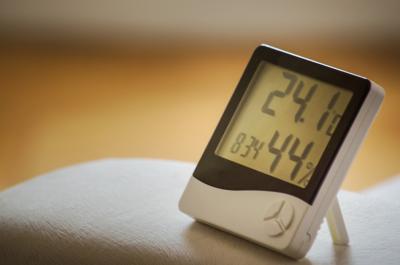Have you ever found yourself suddenly shaken awake by an unnerving dream? Do you regularly find yourself exhausted in spite of your luxurious king size bed? Does the sound of your alarm send shivers down your spine?While many of us view dreams as a pleasurable aspect of sleep, these alternative realities and mysterious voids may actually be affecting the quality of your forty winks.Let’s dive deeper into the mysterious world of dreams.
Yes, We All Dream
There are those who believe that they don’t dream. They’ll protest their dreamless slumber to anyone who dares to argue otherwise.Well, we hate to break it to you but unfortunately we all dream at some point during our temporary hibernation.In fairness, sometimes it doesn’t feel like we dreamt at all. The dreams may be insignificant or maybe we just don’t remember them when we wake. Whatever the reason, dreaming will always come hand in hand with sleep.With this in mind, it’s time to look into whether there really is a correlation between your dreams and the quality of your sleep.
How Do You Define a Good Night’s Sleep?
While there have been more than a few arguments over what exactly resonates as a decent night’s kip, most specialists agree that between 7 – 9 hours of undisturbed rest is what’s needed for your body to feel fully rested and recovered.According to The American Academy of Sleep Medicine, there are four phases of sleep that take place every 90 minutes.Stages 1 and 2 are described as the transition from awareness to light sleep and a gradual slowing of brain waves.Next we have stage 3, which is when we’re fully engrossed in the depths of slumber and completely unaware of our surroundings.Finally we have stage 4, otherwise known as the REM phase. This phase is defined by quicker and shorter intakes of breath as well our eyes moving rapidly beneath the eyelid.The REM phase is usually regarded as the point where the brain begins to dream.Scientists have stated that it’s important for the body to consistently repeat these four phases over a time of approximately 7 – 9 hours in order to achieve what is considered a good night’s sleep.
So, How Do Dreams Affect Our Sleep Quality?
A study into the correlation between dreaming and sleep quality at Harvard Medical School concluded that dreaming supports a healthy mind, helping keep depression and memory loss at bay.In short, dreaming is good for us.It has also been reported that those who struggled to sleep and could not consistently reach phase 4 of the sleep cycle often suffer with memory loss, and less awareness than those who do enact all four phases of their sleep cycle on a consistent basis.So, whereas someone tells them that they rarely dream, they may actually be suffering from sleep deprivation or lack of undisturbed hibernation.
How Does Life Impact Our Dreams?
Do you ever find yourself waking up right in the middle of a good dream? Does it often feel as though your dreams only begin five minutes before your alarms bark at you to get up and get on with your day?Well, you’re not alone.Studies have shown that the phase four of the sleep cycle (the REM phase) often activates the brain waves in keeping with your usual sleeping pattern.This means that your body is gradually waking up and your dreams become vivid as more of your mind is becoming active.It’s also true that if you have a specific stressor on your mind before attempting to hit the hay, those issues will work its way into your dream time.While you may not recognize the correlation during the first few phases of REM, your final cycle before waking will likely contain what was bothering you the night before, as your subconscious picks up on the stress that has carried over.This may be why some of us remember our dreams, as they often have direct connections with something that’s bothering us in reality, while those who struggle to recall their dreams often do so as they have very little to do with anything that is contained in their life at that particular time.
Can We Consciously Impact Our Subconscious?
 It’s commonly known that getting a decent night’s sleep is essential to a healthy lifestyle, but are you aware of how your daily habits can impact the dreams that encompass your slumber?Believe it or not, we can 100% impact the state of our dreams and the best thing is, the solutions are pretty easy.To begin with, it’s important to ensure that your room is dark and at the optimum temperature (approximately 18 – 20 degrees Celsius).Next, there are the little things that relax the mind and prepare it for bed, whether it’s reading a book or taking a hot bath, it’s commonly noted that your brain should not come into contact with technology before attempting to sleep.Alongside this, you should always strive to ensure that your sleeping environment embodies the zen frame of mind you're trying to achieve. If your room is cluttered, try something simple like an ottoman storage bed to free up some space, or if you find that your mattress is causing you discomfort, it may be time to upgrade.Finally, you should attempt to get into a consistent sleeping pattern, one that will ensure that your body is regularly rested as to ensure and that your brain isn’t attempting to stay active during the hours that you’re attempting to drift off.You’ve probably heard most of this before from your parents, but studies have shown that these tips and tricks aren’t just old wives’ tales that are meant to enforce a consistent bedtime.So there you have it. Hopefully, we’ve shown you that dreams are far from the confusing void of unexplainable mystery that many believe them to be.
It’s commonly known that getting a decent night’s sleep is essential to a healthy lifestyle, but are you aware of how your daily habits can impact the dreams that encompass your slumber?Believe it or not, we can 100% impact the state of our dreams and the best thing is, the solutions are pretty easy.To begin with, it’s important to ensure that your room is dark and at the optimum temperature (approximately 18 – 20 degrees Celsius).Next, there are the little things that relax the mind and prepare it for bed, whether it’s reading a book or taking a hot bath, it’s commonly noted that your brain should not come into contact with technology before attempting to sleep.Alongside this, you should always strive to ensure that your sleeping environment embodies the zen frame of mind you're trying to achieve. If your room is cluttered, try something simple like an ottoman storage bed to free up some space, or if you find that your mattress is causing you discomfort, it may be time to upgrade.Finally, you should attempt to get into a consistent sleeping pattern, one that will ensure that your body is regularly rested as to ensure and that your brain isn’t attempting to stay active during the hours that you’re attempting to drift off.You’ve probably heard most of this before from your parents, but studies have shown that these tips and tricks aren’t just old wives’ tales that are meant to enforce a consistent bedtime.So there you have it. Hopefully, we’ve shown you that dreams are far from the confusing void of unexplainable mystery that many believe them to be.












